Construction is one of the most dangerous industries to work in — and the risk of sustaining a traumatic brain injury (TBI) on the job is high. These types of injuries can occur due to blunt force trauma to the skull or an object piercing the skull. They are often disabling, life-altering, and require long-term treatment. If you suffered a traumatic brain injury in a construction accident, it’s essential to be aware of your legal rights and recourse.
Causes of Traumatic Brain Injuries in Construction Accidents
Traumatic brain injuries in construction accidents are often caused by the negligence of a third-party on the site, such as a property owner or contractor. For example, hazardous working conditions, poor lighting, debris, inadequate training, and lack of proper safety gear are all factors that can contribute to a TBI. Traumatic brain injuries can also arise due to the following types of construction accidents:
- Falls from scaffolds
- Falls from ladders or roofs
- Falls through floor openings
- Being caught in between machinery
- Being struck by falling debris or materials
- Slip and falls on slick or oily flooring
- Trip and falls on tools or misplaced materials
- Structural collapses
- Vehicle accidents
Critically, workers have the right to carry out their tasks on a reasonably safe job site. Many TBIs in construction accidents could have been prevented with proper personal protective equipment, fall protection systems, training, regular site inspections, and other safety measures. In the event a TBI was caused by the negligence, carelessness, or recklessness of a third-party on the site, an injured worker may be entitled to pursue monetary recovery beyond Workers’ Compensation by filing a personal injury action.
What are the Medical and Financial Implications of a Construction Accident-Related Traumatic Brain Injury?
Traumatic brain injuries in construction accidents can range from mild to severe — the seriousness depends upon the force of impact, the position of the head at the time of the accident, and the extent of the damage. Specifically, TBI may be classified as either closed, penetrating, or acquired. While a closed TBI occurs when an object collides with the head, a penetrating TBI is caused by an object piercing the skull which directly damages the brain tissue. An acquired TBI can result from a shaking of the skull and can take weeks or months to manifest.
A construction-related TBI can require extensive medical treatment and physical rehabilitation, leading to a significant amount of medical bills. Some victims may also find it difficult to communicate, concentrate, move, or be physically independent. This can cause them to have a diminished quality of life and make it impossible for them to return to their employment and make a living. Although Workers’ Compensation covers accident-related medical expenses and a certain amount of lost wages, it is typically not enough to compensate a worker for the full extent of their damages.
A TBI can have a devastating impact on a construction worker’s daily life and livelihood. Importantly, by filing a personal injury action against a negligent third party for a traumatic brain injury sustained in a construction accident, a worker can recover their unreimbursed medical expenses, lost wages, out-of-pocket costs, and future lost earnings. They can also recover compensation for the pain and suffering they experienced due to the TBI.
Contact an Experienced New York Construction Accident Attorney
A traumatic brain injury caused by a construction accident can affect all aspects of your life — and it’s crucial to hold the negligent party accountable for the harm they caused you to suffer. The Edelsteins, Faegenburg & Brown, LLP is a New York personal injury firm dedicated to fighting for the rights of construction accident victims who have suffered traumatic brain injuries and securing the maximum compensation to which they’re entitled. Applying our extensive knowledge, skill, and acumen in every case, we have a long track record of securing substantial settlements and verdicts for our clients. Contact us to schedule a free consultation at (212) 425-1999 today.

